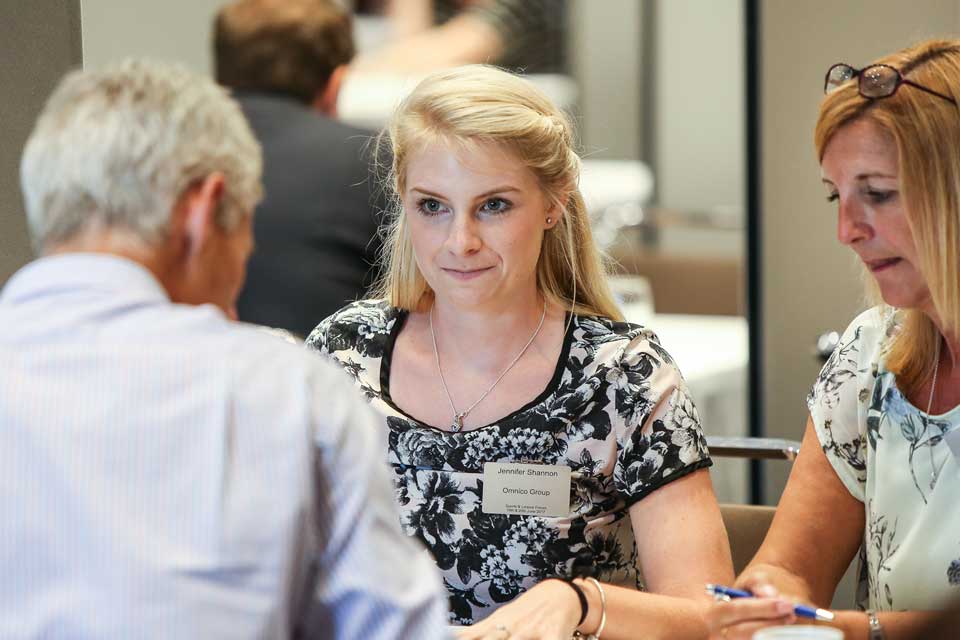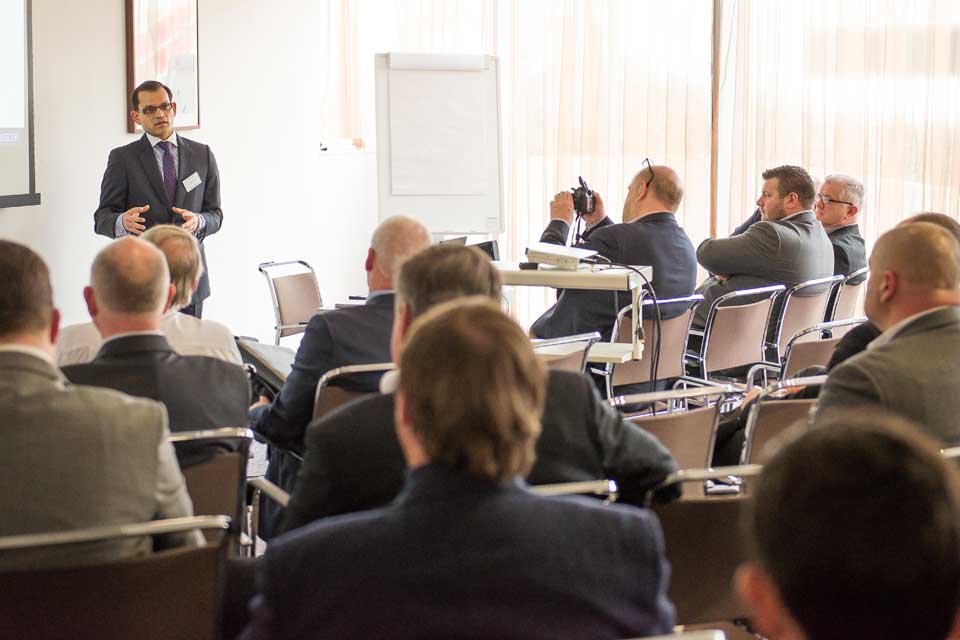According to Google’s Car Purchasing UK Report in April 2017, car dealers invested £115.9 million into online display and direct mail marketing in 2016.
Generally, car manufacturers have a generous marketing budget to hand, where other sectors may not. As online platforms increase their importance as an information source, securing online visibility can be costly. To investigate the worth of this investment, Audi dealership Vindis explores further…
Motor Industry
Over 82% of the UK’s over 18s have internet access, meaning more shoppers are choosing digital platforms to seek purchases, according to Google’s Drive To Decide Report (in association with TNS). These figures show that for car dealers to keep their head in the game, a digital transition is vital.
The report goes on to show a high volume of potential car buyers research online prior to purchase. 51% of buyers start their auto research online, with 41% of those using a search engine. To capture those shoppers beginning their research online, car dealers must think in terms of the customer’s micro moments of influence, which could include online display ads – one marketing method that currently occupies a significant proportion of car dealers’ marketing budgets.
With 11% of the total UK Digital Ad Spending Growth in 2017 coming from the motor industry (according to eMarketer), the motor industry is second only to the retail sector in terms of digital ad spending. The automotive industry is forecast to see a further 9.5% increase in ad spending in 2018.
The impact of digital presence leading to a secured deal is clear. 41% of shoppers who research online find their smartphone research ‘very valuable’. 60% said they were influenced by what they saw in the media, of which 22% were influenced by marketing promotions – proving online investment is working.
Digital marketing has already shifted from the fifth most popular method of marketing for the motor industry to the third most used. This is a 10.6% increase in expenditure for the platform in the last five years alone.
Utilities Industry
Comparison websites are becoming the go-to source for an increasing number of consumers when considering switching their utility suppliers. These websites could prove to be a vital, digital door for suppliers seeking customer retention and acquisition.
Where comparison websites are boosting their presence with TV marketing, utility suppliers must ensure they appear on those websites with the most appealing rates. The four largest comparison websites – Compare the Market, MoneySupermarket, Go Compare and Confused.com are among the top 100 highest spending advertisers in the UK, but does that marketing investment reflect on utility suppliers?
These comparison sites can be the catalyst for customers switching or choosing to stay.. If you don’t beat your competitors, then what is to stop your existing and potential new customers choosing your competitors over you?
Customer retention has already become a primary focus for British Gas, even over customer acquisition. Whilst the company recognise that this approach to marketing will be a slower process to yield measurable results, they firmly believe that retention will in turn lead to acquisition. The Gas company hope that by marketing a wider range of tailored products and services to their existing customers, they will be able to improve customer retention.
With a loyalty scheme set to be backed with an investment of £100 million, the company is showing how tending to their existing customers is a priority above looking for new customers.
Google’s Public Utilities Report in December 2017 showed that the utilities industry is attributed to 40% of searches and 45% of ad impressions on mobile devices. As mobile usage continues to soar, companies need to consider content created specifically for mobile users as they account for a large proportion of the market now.
Fashion Industry
The fashion industry has already seen a huge benefit to online presence, as online sales hit £16.2 billion in 2017. This figure is expected to continue to grow by a huge 79% by 2022. So where are fashion retailers investing their marketing budgets? Has online marketing become a priority?
According to the British Retail Consortium, 25% of all purchases in December 2017 were done online. ASOS experienced an 18% UK sales growth in the final four months of 2017, whilst Boohoo saw a 31% increase in sales throughout the same period.
Following hot on the heels of this success are big name brands such as Marks and Spencer, John Lewis and Next: these brands have already invested millions into their online marketing in order to establish a dominant presence and, in turn, a slice of the online shopping experience. John Lewis announced that 40% of its Christmas sales came from online shoppers, and whilst Next struggled to keep up with the sales growth of its competitors, it has announced it will invest £10 million into its online marketing and operations.
With so many shoppers opting for smartphone usage, footfall on the highstreet may be falling, but convenient online shopping is ever on the increase.
Over half of fashion marketers chose to add more to their influencer marketing last year, according to PMYB Influencer Marketing Agency. In fact, 75% of global fashion brands collaborate with social media influencers as part of their marketing strategy. Over a third of marketers believe influencer marketing to be more successful than traditional methods of advertising in 2017 – as 22% of customers are said to be acquired through influencer marketing.
Healthcare Industry
Due to its nature, the healthcare industry has to follow a different path when marketing. The same ROI methods that have been adopted by other sectors simply don’t work for the healthcare market. Despite nearly 74% of all healthcare marketing emails remaining unopened, you’ll be surprised to learn that email marketing is essential for the healthcare industry’s marketing strategy.
Email has undoubtedly become the primary means of communication for many, with around 2.5 million users. This means email marketing is targeting a large audience. For this reason, 62% of physicians and other healthcare providers prefer communication via email – and now that smartphone devices allow users to check their emails on their device, email marketing puts companies at the fingertips of their audience.
The value of online marketing for the healthcare industry is clear when one considers how many of us turn to Google for health questions. This could be attributed to the fact that many people turn to a search engine for medical answer before calling the GP. In fact, Pew Research Center data shows 77% of all health enquiries begin at a search engine – and 72% of total internet users say they’ve looked online for health information within the past year. Furthermore, 52% of smartphone users have used their device to look up the medical information they require. Statistics estimate that marketing spend for online marketing accounts for 35% of the overall budget.
Social media must also be considered. Whilst the healthcare industry is restricted to how they market their services and products, that doesn’t mean social media should be neglected. In fact, an effective social media campaign could be a crucial investment for organisations, with 41% of people choosing a healthcare provider based on their social media reputation! And the reason? The success of social campaigns is usually attributed to the fact audiences can engage with the content on familiar platforms.
The return on investment
Online marketing has proven to be essential across all sectors. With a clear increase in online demand in both sectors that is changing the purchase process, some game players could find themselves out of the game before it has even begun if they neglect digital. The utilities sector has the additional facet of comparison websites to consider. Without the correct marketing, advertising or listing on comparison sites, you could fall behind.
It’s expected that the average firm will spend at least 41% of their marketing budget in the form of online marketing in 2018, according to Webstrategies.com. This figure expected to grow to 45% by 2020. Social media advertising investments is expected to represent 25% of total online spending and search engine banner ads are also expected to grow significantly too – all presumably because of more mobile and online usage.
The worth of online marketing investment is clear. If mobile and online usage continues to grow year on year at the rate it has done in the past few years, we forecast the investment to be not only worthwhile, but essential.
Sources
https://pmyb.co.uk/global-fashion-company-influencer-marketing-budget/
https://www.prnewswire.com/news-releases/the-uk-clothing-market-2017-2022-300483862.html
http://uk.fashionnetwork.com/news/Online-is-key-focus-for-UK-fashion-retail-investment-in-2017,783787.html#.WrOjxOjFKUk
http://www.mobyaffiliates.com/blog/retail-accounts-for-14-2-of-digital-advertising-spending-in-the-uk-in-2017/
http://www.thisismoney.co.uk/money/bills/article-2933401/Energy-price-comparison-sites-spend-110m-annoying-adverts.html
http://www.thedrum.com/news/2017/03/28/british-gas-shifts-acquisition-retention-marketing-know-the-value-keeping-the-right
https://www.independent.co.uk/news/business/news/uk-companies-online-advertising-spend-10-billion-more-last-year-2016-pwc-a7678536.html
https://www.webstrategiesinc.com/blog/how-much-budget-for-online-marketing-in-2014
https://www.kunocreative.com/blog/healthcare-email-marketing
http://www.evariant.com/blog/10-campaign-best-practices-for-healthcare-marketers
https://getreferralmd.com/2015/02/7-medical-marketing-and-dental-media-strategies-that-really-work/









